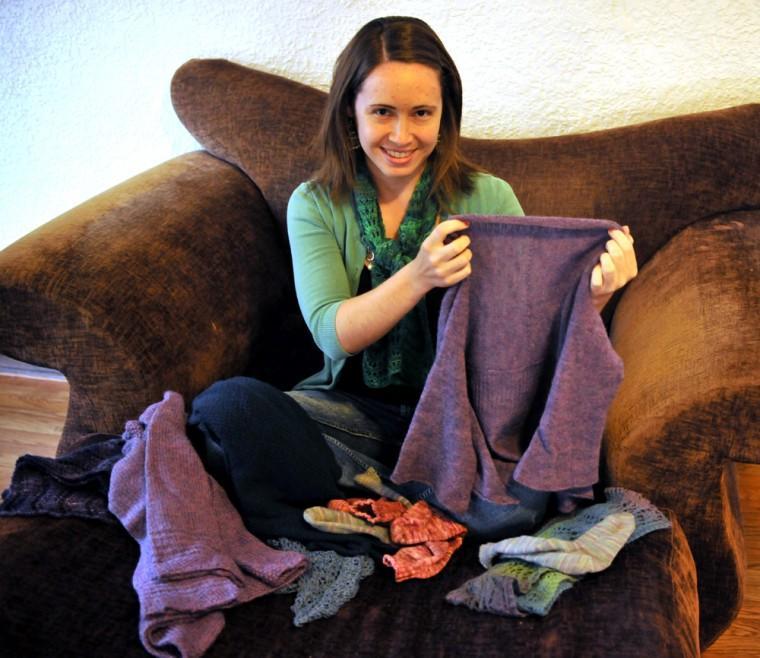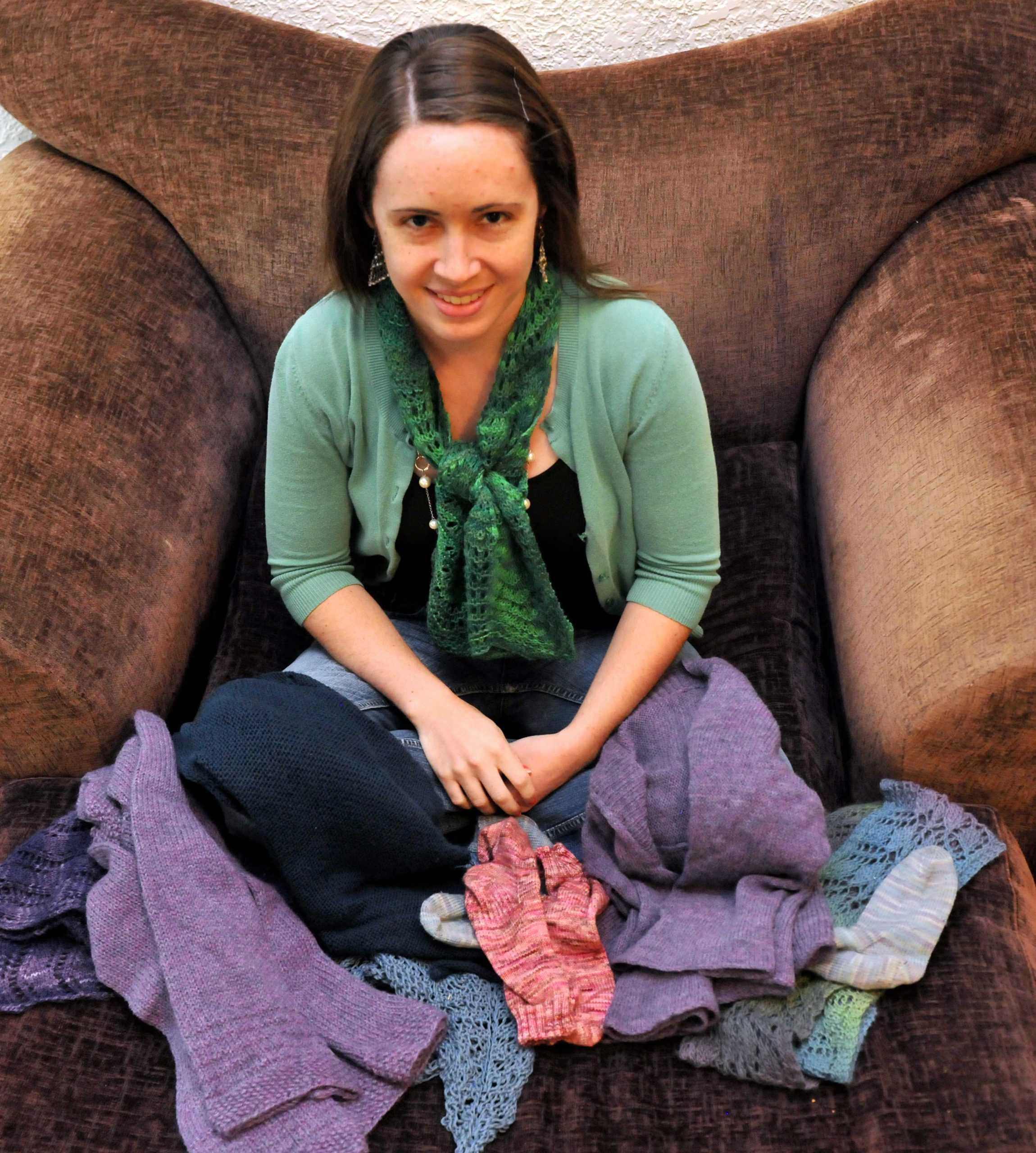Knitting doesn’t just put the clothes on University graduate student Catherine Newman’s back, it also puts money in her bank account.
Newman is one of four recipients of the $2,250 Beans For Brains Scholarship, which pays a notable fraction of her tuition.
The scholarship is given annually to one recipient from each region of the United States based on the applicant’s GPA, extracurricular activities, written essay and essentially, his or her knitting or crocheting abilities.
After growing up in the South, graduating with a bachelor’s degree in elementary education and teaching fifth grade science for a year, Newman moved west to work on her master’s in biology at the University of California, Davis.
Newman met a friend in Davis who taught her the essentials of knitting, and it soon became a hobby.
“She taught me the basics, and I started from there, watching little videos online and stuff,” she said. “I began with knitting small things like socks and scarves.”
As she defies the stereotype that comes with the hobby, you won’t catch Newman knitting in a rocking chair while watching daytime talk shows.
Instead, she can usually be found knitting in a biology seminar, or if it’s Saturday, in the giant chair in her living room while watching an indie science-fiction movie on Netflix.
“Yeah, I’m totally feminist, very liberal, like anti-stay-at-home type of girl,” she said.
Newman didn’t just find different personal interests in Davis, she also discovered something new to the world — a species of frog native to New Jersey. Though it’s not officially named, the frog species is named Rana sp. nov.
Newman’s master’s work consisted of phylogenetic studies with frogs and turtles.
The discovery came when Newman was doing a genetics study on Leopard Frogs from northern New Jersey.
“I was trying to get DNA samples from New Jersey when I got in touch with this grad student at Rutgers [University], who told me some field biologists had these four populations of Leopard Frogs that had calls that sound different from the Northern and Southern Leopard Frogs,” Newman said. “But, they didn’t have the background in genetics to do the research.”
Newman had the background, though. And just as she had an open mind about knitting, she pursued the research without hesitation.
To her surprise, the research produced notable results.
“I think everybody thought it was going to be kind of cool to begin with, but it ended up being a lot cooler,” she said.
Newman expects to be studying at LSU for the next six years to earn her Ph.D. and plans to work as a scientific research professor at a university in the future.
No matter how many cardigans or scarves Newman creates with her hands, she said her heart will always be in her studies and in science.
“I think the coolest thing is knowing that even if my research ends up adding just a tiny bit of information to the grand scheme of biology, important people are reading my work,” Newman said. “Important people want to know more about what I’m interested in and want to work with me. Just discovering new things about biodiversity; it’s important.”









